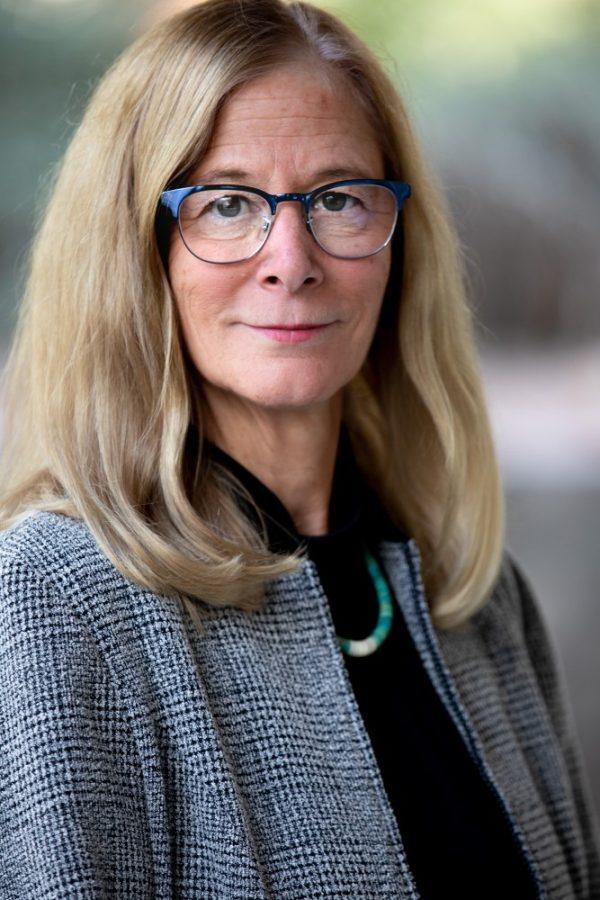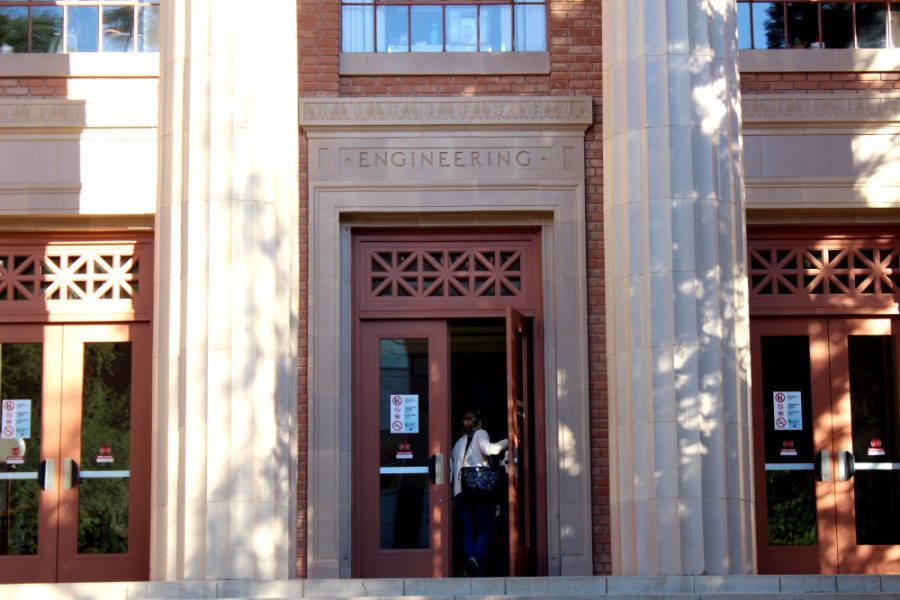Professor Sally Stevens from the University of Arizona’s Department of Gender and Women’s Studies received the United States Presidential Award for Excellence in Science, Mathematics and Engineering Mentoring. Stevens was the only recipient from Arizona.
The Daily Wildcat spoke to her about her research and the award.
Daily Wildcat: Why did you receive the Presidential Award?
Sally Stevens: I received the Presidential Award based on the early-career scientists that I had mentored; many of them are women or from underrepresented ethnic minority groups. Over the course of my career, I’ve mentored over 35 career scientists who’ve gone on to excellent jobs and various STEM disciplines across the country and actually internationally.
Also, some of my innovative K-12 programs for STEM education, again with women or girls and underrepresented minority groups, were emphasized in this award.
RELATED: Four UA women in STEM selected for inaugural class of AAAS ambassadors
DW: Why did you decide to start mentoring underrepresented students?
SS: One reason is that I believe that underrepresented students, whether that be women, girls or those from ethnic minority groups that are underrepresented in the STEM fields, have a lot to offer. A lot of times they’re at a disadvantage for getting into STEM and having their knowledge and their culture and the resources that they bring to the table acknowledged.
When we include women and girls and underrepresented minority groups in STEM education and future STEM careers, they will bring different ideas to the table and different solutions to the world’s most pressing problems.
Not only is it the benefit for the individual themselves, in terms of a great career, financial stability, interesting everyday life in what they’re learning and working in, but it also furthers the sciences across the globe in terms of the larger problems we’re experiencing and making solutions to those problems.
DW: Do you have an example of a student you mentored that went on to do something impressive/notable?
SS: There are really several students. I don’t know how to just highlight one over the other. For example, one of the students I’ve mentored is now the head data analyst in the Department of Health [and Social Services] for the state of Alaska. Another one is a dean for the College of Public Health at a Research I institution. Another is a professor doing data analysis on sleep and is mentoring her own students. Yet another works for large health care corporation, again doing large data analysis.
Those are just a few that I can mention now, but there’s several who’ve gone on to do great things. I think part of being a mentor is being able to see your mentees further than what you have in your own career.
DW: How old are the students you mentor? Do you focus on a specific age group?
SS: The early career awards and students are generally Ph.D. students, or at least master’s level students, but I do mentor some undergraduate students. Some of the programs that I work with are K-12. One, in particular, is third through eighth grade. It’s a wide range. I haven’t had as many post-docs as I would like, but I would say, primarily, they’re graduate students.
DW: What is a specific mentoring project that you’ve worked on that stands out to you?
SS: One project I worked on was iSTEM project, and it was a partnership in the community with public schools, working with third through eighth grade Native American students. We had an in-school mentoring program, where mentors would work with the students at their lunch hour, doing flash STEM activities around a certain theme. For example, solar energy or agriculture or ecology or health.
They would do those modules for about six to eight weeks at the school during their lunch hour. They were prepackaged activities. They had to do these activities very quickly, because there’s not a lot of time at lunch hour. During that six or eight week period, they would also be able to go on a field trip to a relevant science-specific site.
A lot of those filter through the University of Arizona, whether that be at the College of Engineering building solar robots. One time, we took the students to Mount Lemmon, the germ lab at the College of Public Health. So different various venues where students could go on a field trip to really get a hands-on experience in the wider community.
DW: Do you have any future research plans at the moment?
SS: Currently, I’m doing some research, and what I would like to do is expand the iSTEM program and implement it in different communities to see if we can replicate the good findings that we have that were demonstrated with the iSTEM project, so I’m looking for funding for that.
I’m interested first in completing the data analysis and publishing that project and then writing for more funds for the next research project.
DW: Why is it important to you to focus on girls and young women in STEM in your research and mentoring?
SS: A lot of times I think that women and girls are underrepresented. I think minorities are not given the opportunities they should in terms of the STEM disciplines. They’re completely capable of doing science and math and engaging in problem solving that will really bring different solutions to the world’s largest problem, and also helping themselves financially and having a career that they can enjoy that is exciting and rewarding.
It’s really two things. One, it’s about the wider contribution they can make in terms of problem solving. Second, it’s about their own individual advancement.
DW: How did you find out you received the Presidential Award?
SS: I received an email congratulating me on the award, and that was approximately three weeks ago.
DW: Were you surprised? Was there an application process?
SS: Yes, there was an application process that was completed about three years ago. That takes a long time for the review to go forward. I thought I might be an awardee because I received several questions, particularly in the last year, from the National Science Foundation.
However, I was not told that I had received the award until just before the awards event.
RELATED: Medical resident receives national award for community service
DW: What does it mean to you to receive an award for your work from the president?
SS: First of all, it’s very exciting, and I’m honored to be acknowledged. It also points to the value of mentoring overall, and mentoring particularly in STEM fields for the advancement of the next generation of students and early career scientists, and for that, I’m very thankful.
Follow Priya Jandu on Twitter















